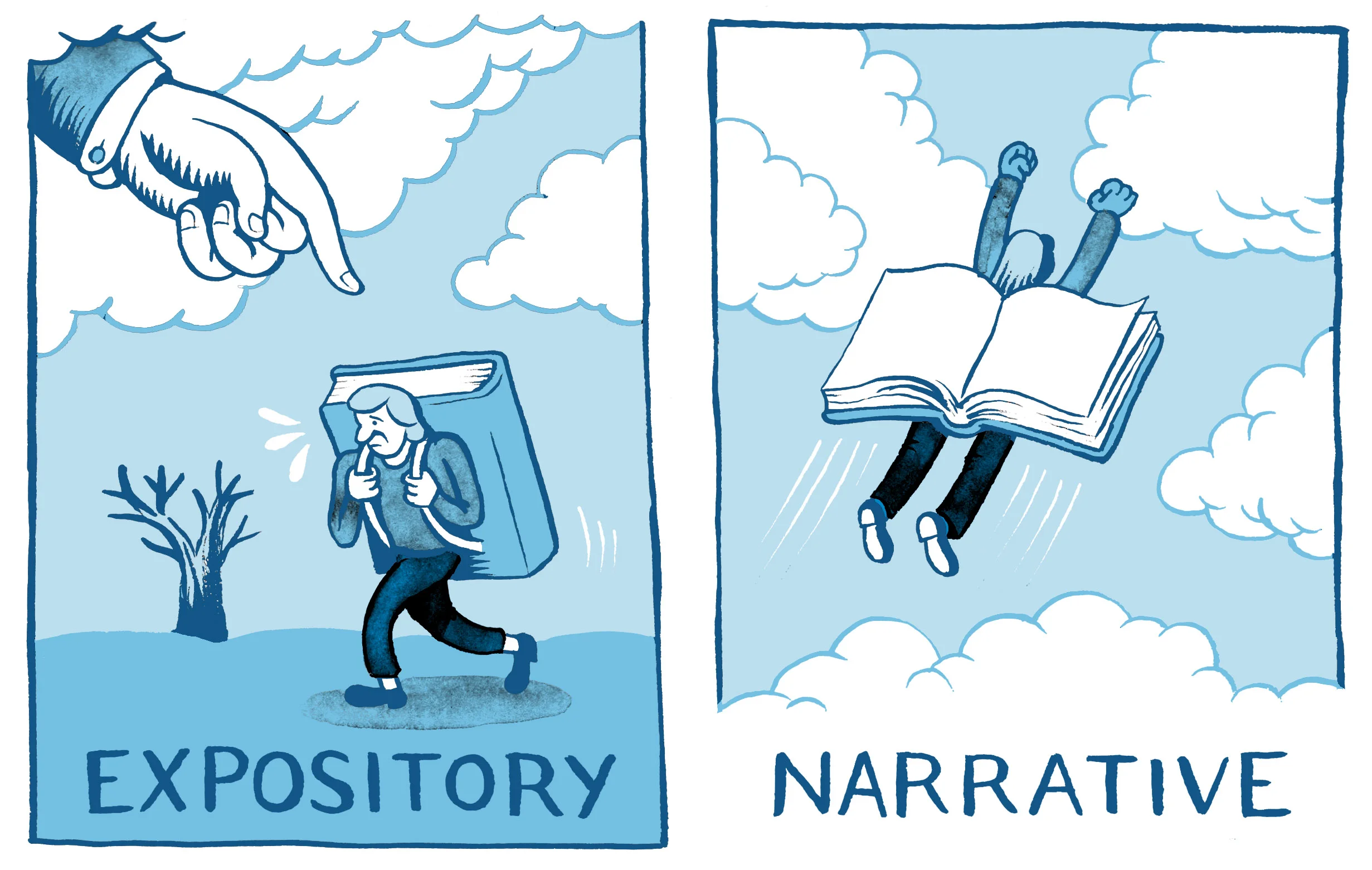Science Narratives
/I have always been interested in stories about science, but for some reason I never seriously considered narratives from a scientific perspective. The fact that I considered science a worthwhile subject for fiction, but not fiction a worthwhile subject for science, clearly betrays my scientific background. As scientists we often see narratives as a pleasurable distraction, at best, or something to avoid altogether in our work, as a story is considered pretty much the opposite of data. Narratives played an important role in early scientific reports (think of Galileo’s Dialogue) but as science and the humanities drifted apart we abandoned personal accounts in favour of more 'objective' expository texts. This is probably why before starting my project on visual narratives I never asked myself the obvious question: what is a narrative?
I was aware of the structuralist approach (Barthes 1975) but I was looking for a more empirical answer. Research in the field of psychology and education suggests that narratives are a fundamental way to acquire and organize information (Bruner 1986) and possibly a way to simulate social experience (Mar and Oatley 2008, Gottschall 2012). There is compelling evidence that narratives are a powerful tool for engagement and persuasion (Green and Brock 2000) and this is why many argue for their use in science communication (Dahlstrom 2014, Olson 2015). All this made me wonder if narratives could be more than just a ‘tool’ but rather a ‘necessity’. Are we, scientists (or academics more in general), deluding ourselves by thinking that we can avoid narratives when presenting our research? If our brains are hardwired to tell stories should we not try to study how they work and how we can use them more efficiently?
Also, given the turbulent times at which I have started this project, I couldn’t help drawing some connections between my readings and current events. These days our society (or at least part of it) seems to be shocked by how facts are easily trumped by fiction. There has been considerable debate around so-called ‘fake news’ that are spreading on social media, and how we should monitor and report them. Someone argues that we effectively live in a post-truth world where the number of ‘shares’ is the only measure of validity for an opinion, rather than supporting evidence. Of course, as a scientist I find this is extremely troubling but it also made me question whether we ever really ever lived in a world that valued logic-scientific thinking per se, or if science simply happened to be the dominant narrative for a while,
During the technological boom of the 20th century science was probably a convenient narrative to embrace. Surely it disrupted religion and other traditional values but in exchange it offered a more powerful and simple story: infinite progress (i.e. trust and support science and it will improve your life, forever). Now that we start to face more complex problems (e.g. overpopulation, climate change, neurological disorders) this promise has failed. Science does not offer a linear narrative anymore, nor a simple solution, only an ever growing pile of facts. Is it really so surprising then that people are reverting to fake but simpler stories? After all, this is exactly why religions and other populist narratives have dominated for thousands of years. I am not suggesting that science as a method has failed, but that we - as scientists - may have been mistaken in assuming that a clear exposition of facts should be enough to convince people. Science probably needs stories just like any other system of beliefs. I hope the current debate around ‘fake news’ could be a wake up call for scientists because now more than ever it is important to acknowledge the power of narratives and recognize that fiction is not always the opposite of facts. Good stories can also be true and these are the stories we need to learn how to tell.
REFERENCES:
Barthes, R., and Duisit, L. (1975). An Introduction to the Structural Analysis of Narrative. New Lit. Hist. 6, 237–272.
Bruner, J.S. (1986). Actual Minds, Possible Worlds (Harvard University Press).
Dahlstrom, M.F. (2014). Using narratives and storytelling to communicate science with nonexpert audiences. Proc. Natl. Acad. Sci. U. S. A. 111 Suppl 4, 13614–13620.
Gottschall, J. (2012). The Storytelling Animal: How Stories Make Us Human (Houghton Mifflin Harcourt).
Green, M.C., and Brock, T.C. (2000). The role of transportation in the persuasiveness of public narratives. J. Pers. Soc. Psychol. 79, 701–721.
Mar, R.A., and Oatley, K. (2008). The Function of Fiction is the Abstraction and Simulation of Social Experience. Perspect. Psychol. Sci. 3, 173–192.
Olson, R. (2015). Houston, We Have a Narrative: Why Science Needs Story (University of Chicago Press).


